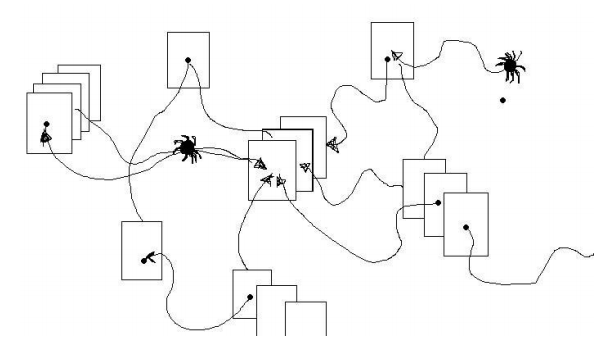Understanding Google Algorithms

What are Google Algorithms?
With the growing popularity of Internet Marketing, Google Algorithm is the term we all have heard about. But before talking about Google Algorithm, let’s talk in general what algorithm is. An algorithm is a set of rules for solving a problem in a defined number of steps.
Google Algorithms follow the same rules but frequently change with time. Google has an immensely complex algorithm for searching. Though they have not made their exact algorithm public, we still tried to figure out a few elements which may have an impact on the search results. They are:
- The appearance of keywords in page content, meta description tags, and header tags
- Organic backlinks to your site
- Website performance on mobile devices
- Website ranking in SERP
Google Algorithm process for Search
Google’s algorithms have developed dramatically in the past few years, and now they rely on more than 200 unique signals that enable the users to find what they are looking for on the web. The process starts with crawling and indexing the web pages for which Google, as well as other search engines, have their own robots, crawlers or spiders, known as ‘Googlebot’. These robots move from one page to another to analyze the content and crawling.
In this image, the spider is crawling and indexing a webpage
Google Algorithm Major Updates
Let’s have a look at the most significant Google Algorithm updates of all the times:
1. Google Panda: Launch Date: 24th February 2011
Google Panda is one of the major updates as it evaluates websites based on content quality. High-quality content pages are rewarded with higher ranking positions and vice versa.
This update is primarily to maintain good quality content. A ‘quality score’ has been assigned to each web page, which is used as a ranking factor to rank for sites in SERP.
To overcome Panda’s effect, webmasters should keep an eye on duplicate or thin content of their website.
2. Google Penguin: Launch Date: 24th April 2012
Google Penguin targeted websites with bad or spammy links. The primary objective of this update is to decrease rankings for websites with webspam or those violating Google’s quality guidelines.
Many sites that were doing cloaking, keyword stuffing, and other spammy methods have been affected by Penguin.
To overcome Penguin’s effect, do a regular backlink audit of your website and remove spammy or irrelevant links.
3. Google Hummingbird: Launch Date: 22nd August 2013
Hummingbird is considered one of the most significant changes in Google’s Algorithm history. This Algorithm pays attention to each word user is asking as a query and gives you the best result. Its primary objective is to make interactions more human by making search results more relevant.
To overcome its effects, webmasters should expand their keyword research and focus more on concepts and not keywords.
4. Google Pigeon: Launch Date: 24th July 2014
Pigeon affects those websites with on and off page SEO. Users started focussing on their Local search results and start investing in off-page SEO.
5. Google Mobile-Friendly update (Mobilegeddon): Launch Date: 21st April 2015
Google Mobile update or Mobilegeddon is mainly to check your website’s Mobile friendliness.
Websites must follow few requirements to be considered as mobile friendly, and if your pages are not optimized, they must have been filtered out of the searches or lost their previous high ranking.
Why Algorithms are Important?
Google Algorithms play a crucial role and understanding algorithms, and its changes provide you with a great way to understanding SEO. So, make your content worthy and user-friendly to rank higher in SERP.



